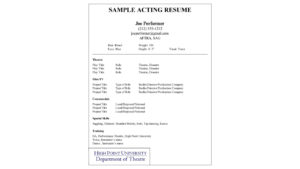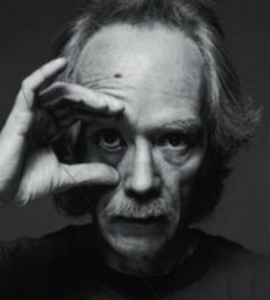A casting director is responsible for choosing the cast, or the actors and actresses who will fill the roles in a production. This production may be something like a film, television show, or play. In smaller productions, the director and producer will typically maintain control over casting and select who will perform. However, as production scales, the director and producer will likely rely on the skills of a casting director to handle the casting process and find the right performers to fill the roles.
What Is the Job?
A casting director is involved in the production of a film from the start of the project. Beginning in the pre-production phase of a show, a casting director will read the script to determine which actors might fit well in the roles. They work with the producers to determine the casting needs and the budget for the actors. This individual also meets with the director to get a sense of what the show’s leader envisions for the characters in the production. The casting director then becomes the driver of the cast.
What Are the Key Casting Director Responsibilities?
One of the main responsibilities of a casting director is to serve as the point person for all cast-related needs of a show.
Finding Actors
The tasks associated with casting include auditioning actors, contacting companies that assist with local casting and extras, and connecting with local talent agents in various states and countries when the production requires it.
Staging Auditions
Before setting up auditions, a casting director must review audition videos and headshots to determine if the actors meet the requirements for the role. They will use this information to select the first round of candidates, who will be chosen to audition in person. The audition phase is handled by the casting director.
Advocating for the Talent
Casting directors are also responsible for protecting those who audition and seek to perform in shows. A professional casting director must maintain a safe atmosphere throughout the process for actors.
Education & Training
Many casting directors have undergraduate degrees in film production, acting, or a similar area, although some learn the trade through informal apprenticeships. The path to becoming a casting director isn’t singular; those in this role have vastly different educational backgrounds.
Casting Director Experience & Skills
In order to have success as a casting director, you must have the following skills.
Eye for Talent
The first is an eye for talented individuals, as casting directors need to determine whether an actor is the right fit for a role.
Good Memory
Another vital skill is an excellent memory, as a casting director must remember the people with whom they interact.
Patience
Patience is a priority for anyone in this role. Casting directors must stay on top of deadlines and keep track of long lists of roles that need to be filled.
Personality
The personality of a strong casting director is often calm, as this individual must be able to keep a cool head when situations arise.
Lifestyle
The lifestyle of a casting director ultimately depends on their career path. Those who work for studios have more consistent working hours, while freelancers must respond when projects and opportunities arise.
Casting Director Job Description
A casting director may work for a production company or studio, or could work on a freelance basis. They are responsible for some of the human resources tasks on a film set, possessing strong interpersonal and communication skills. Casting directors work closely with casting agents, talent agencies, producers, writers, and directors to ensure that the right actors are cast in productions.
The Importance of Casting in a Production
A production’s cast is one of the keys to its success. The actors chosen to perform in the film, play, or television show will tell the story and represent the characters.
Casting Directors vs. Casting Agents
You may hear a reference to a casting agent, which might cause confusion as to the difference between this role and a casting director. However, the individual who represents an actor or performance is known as a talent agent.
How to Break Into Casting
Someone who works in casting must have a strong and diverse set of skills.
Understand the Craft of Acting
A casting director must be able to find and share the vision of the director and producer of a performance, applying that vision when bringing in actors to fill the roles.
Develop a Good Memory
Remembering people you’ve met, seen perform, and interacted with is another essential aspect of working as a casting director.
Build Your Connections
Casting directors must also form strong connections in the industry. It’s also important to keep in touch with those you meet, as you never know who might be the perfect fit for a role in the future.
Work Your Way Up the Ranks
Experience is highly valued in the film industry, so working your way up and gaining experience is beneficial. You may start as a casting assistant to gain experience.
Working as Freelance Casting Director
A casting director can work for an agency, for a film or television studio, or pursue freelance opportunities, depending on their experience and connections.
Consider Being Television Casting Director
Another opportunity is working as a casting director for a television show, which often provides more consistent work. Television shows need a lot of casting help, as they regularly employ extras to fill scenes.
How to Meet Casting Directors
Many casting directors begin their careers as assistants on production sets for films, television shows, and plays.
Advancement
When looking for advancement opportunities, a casting assistant must gain experience and support others on the production staff by handling a variety of tasks.
What’s a Casting Director’s Salary?
The salary of a casting director depends on several factors, although the most critical factor is the number of productions they cast. According to data from the Bureau of Labor Statistics, the salary range for casting directors starts at $35,480 and goes up to $173,680 per year. The median annual salary is $74,420.
Job Outlook
The BLS doesn’t provide specific details about casting director jobs, although these generally fall under the roles of talent director, producer, or director. These roles are projected to grow about as fast as average between 2018 and 2028.
Unions, Groups, and Associations
In the last few decades, more casting directors have unionized, becoming part of the Hollywood Teamsters Local 399. The Casting Society of America is a professional organization and many casting directors join this organization to become certified.
Employment
You can look for employment opportunities in the form of internships and other similar entry-level roles to get more experience. The Casting Society of America and social media groups are other good resources for job openings.
How to Meet Casting Directors
As you look for ways to expand your network and get to know casting directors, you can utilize professional organizations and associations. Join these organizations to get access to people who are currently working in the field and may be able to provide insights or even take you on as an assistant. Some of the top organizations include the Casting Society of America, the Actor’s Fund of America, and the Non-Traditional Casting Project.
Getting Started
You may start by interning for a casting director or working as an assistant. Many of these roles require at least some experience, so look for ways to get involved, such as working on your school plays or performances.
The Final Callback – Career Advice
If you want to become a casting director, work to gain as much experience as possible. It is also helpful to understand that your work hours may be long and irregular, and they often fluctuate between projects. You can learn more about film and how you can improve your skills by applying to the Nashville Film Institute here.













